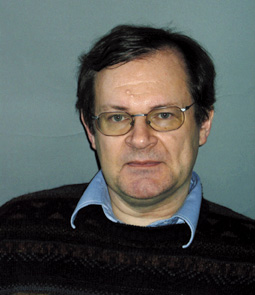URL: https://www.desy.de/news/news/archive_before_2010/2003/desy_2703/index_eng.html
Breadcrumb Navigation
Long-time DESY Guest Scientist honored
For his outstanding contribution to particle physics, in particular for his experimental work at DESY, the British physicist Prof. Brian Foster has been awarded the Max Born Medal and Prize. This prize is presented by the German Physical Society (DPG) and the British Institute of Physics. The 49-years old researcher received the prize on Wednesday, March 26, at the DPG Meeting in Hanover. The particle physicist from the University of Bristol has been working at DESY for a long time.

Prof. Brian Foster
Foster's interest focuses on the study of leptons and quarks. Very early he established links to the Hamburg research laboratory: As a member of the British team of researchers, Foster participated in the TASSO experiment at the electron-positron storage ring PETRA. One of the first important results was the exact lifetime determination of the tau lepton and the heavy B- and D-mesons.
Later, the ZEUS detector attracted his attention. The collaboration of the British physicist in the development, construction and operation of this universal detector, above all the large central tracking chamber, contributed significantly to the success of the ZEUS experiment. Later on, he participated in the successful measurements at ZEUS. Important results were the exact measurement of the structure function of the proton as well as new tests of quantum chromodynamics. Consequently he had a responsible position in the group: from 1999 until the end of 2002, Foster was spokesman of the international ZEUS collaboration.
The experimental physicist is a member of many expert committees, e.g. the European Committee for Future Accelerators, presently presided by him.


